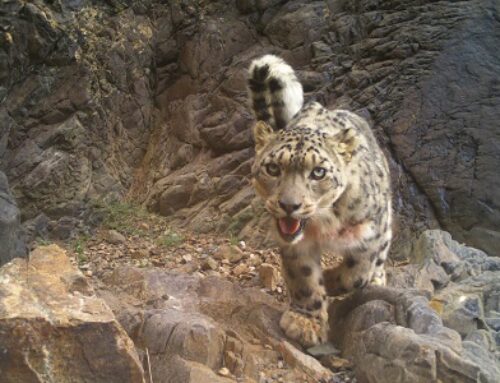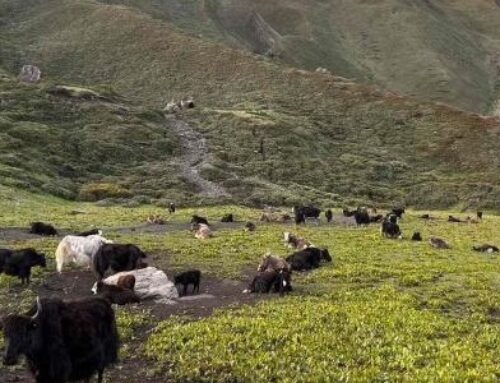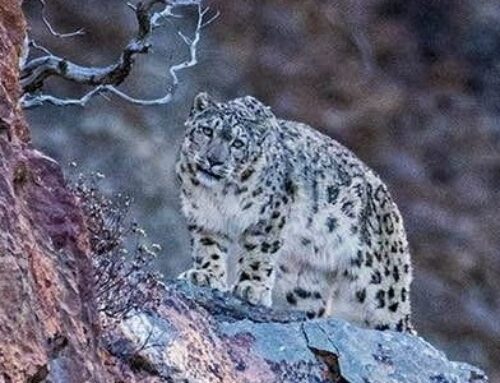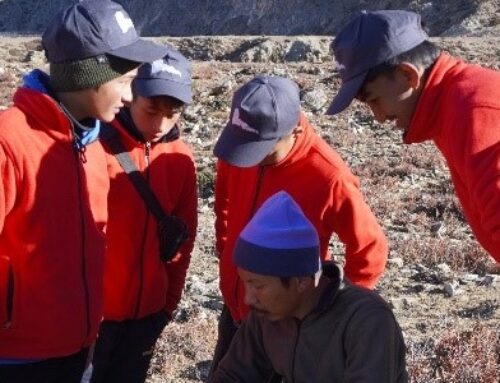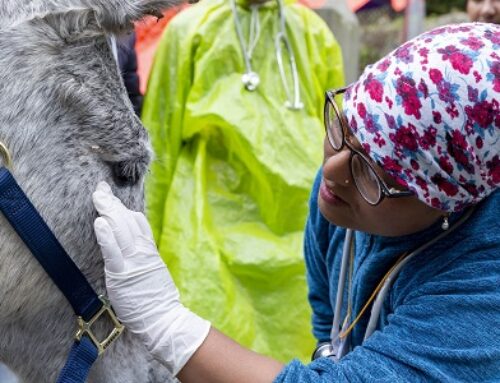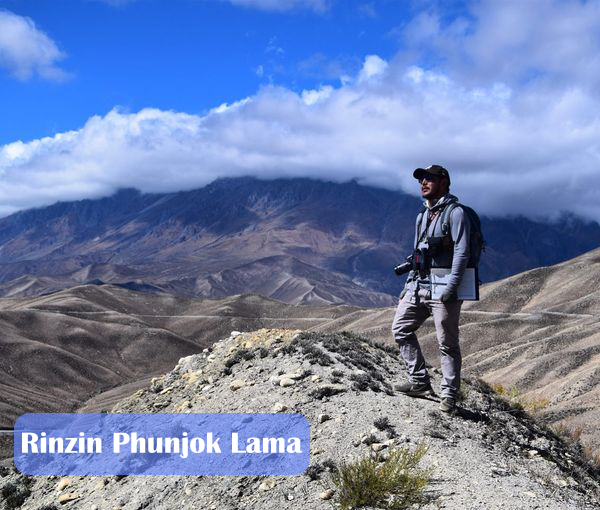
Since 2021, Project UKALI, under the direction of founder Rinzin Phunjok, Lama and in collaboration with the Snow Leopard Conservancy, has focused on capacity building and training, awareness raising through conservation education and outreach, wildlife biodiversity surveying and monitoring, livelihood enterprise development, and enhancement of community-led conservation actions.
Project UKALI maintains a multitude of innovative programs:
CONSERVATION
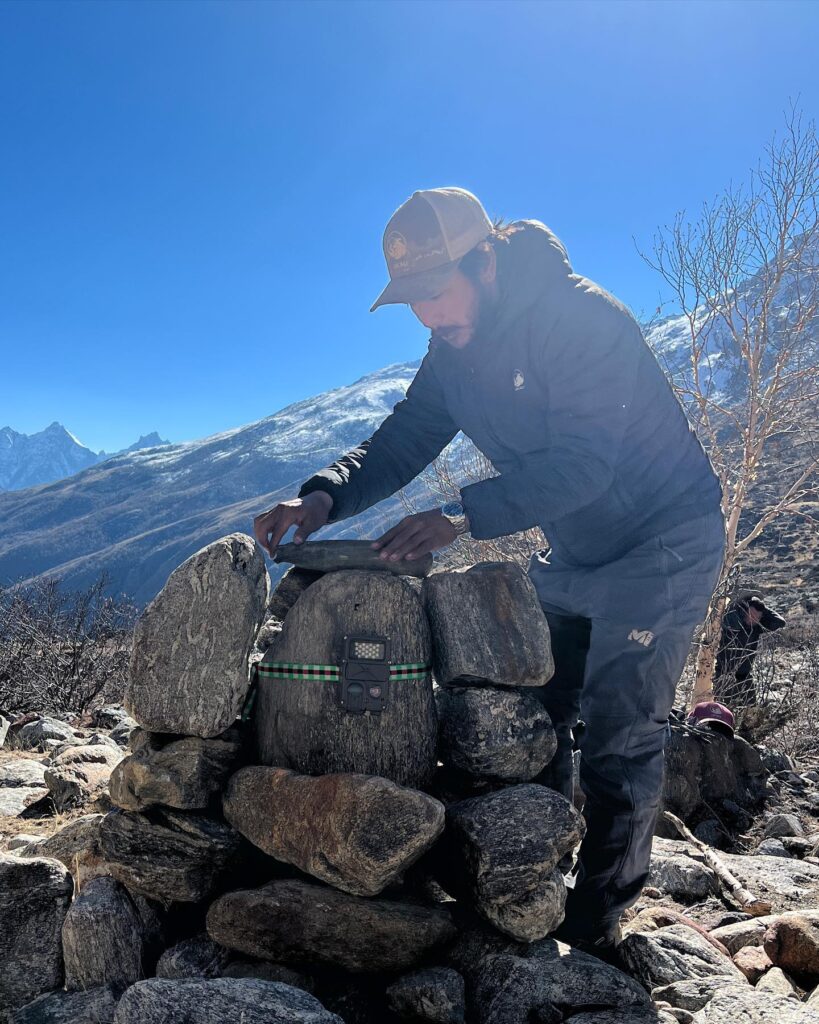
A snow leopard and blue sheep survey was conducted in the Namkha Rural Municipality of Humla. Sixty-three camera traps were strategically placed across varying altitudes ranging from 3160 to 5045 meters (10,368 to 16,552 feet). Snow leopards were detected in 23 locations, resulting in the identification of 25 individual snow leopards based on their pelage pattern.
Additionally, 118 scats were collected at the camera trap locations, of which 103 were genetically identified as snow leopards, with a breakdown of 58 males and 39 females.
TRAINING AND OUTREACH

Citizen Science Program
Robust citizen science training was conducted, using field-based research methods consistent with basic wildlife ecology such as camera trap installation and snow leopard sign identification and documentation.

Community Forest User Groups Workshops
Workshops were conducted in nine community forests of Kharpunath Rural Municipality of Humla, Nepal, that focused on biodiversity assessment, monitoring, and conservation. A total of 74 executive committee members from eight community forest users groups, of which 54 were men and 20 were women, participated in the training workshops.
World Wildlife Day
“On March 3, 2023, to celebrate World Wildlife Day with the theme “Partnerships for Wildlife Conservation,” Project UKALI organized various wildlife conservation and awareness-raising events in 13 different locations across the Humla district. These events were conducted in collaboration with Namkha Rural Municipality, Simkot Rural Municipality, and local community schools. In total, 3816 people directly participated in the celebrations. The news about World Wildlife Day was featured by both local and national newspapers, and broadcasted by local radio stations and national television.”
Radio Journalist Training
Project UKALI “supported a two-day basic radio journalism training program that was organized by Radio Karnali Awaz in Simikot, Humla. A total of 30 students from various community schools participated in the training. The goal of the training was to enhance an understanding of the importance and ethics of journalism among school students. It focused on developing communication skills and instilling a creative attitude and confidence through practical involvement in radio program creation, including news reporting and broadcasting. The students expressed great satisfaction with the training and showed eagerness to apply their new found knowledge in practical settings.”
Radio Programming
UKALI Awaz, hosted by Radio Karnali Awaz, is a radio program, spanning 20 episodes and reaching over 39,000 listeners from diverse cultural backgrounds throughout the Upper Karnali region. The program explores the interconnection of nature, culture, and wildlife coexistence, with the goal of empowering the audience to become stewards of change. The audience is encouraged to take action that positively impacts both the environment and their communities. Focusing on raising awareness of wildlife biodiversity conservation, it also informs listeners about Project UKALI and its ongoing projects. The program is successfully reaching a large audience as evidenced by the number of responses it receives after each broadcast.

Podcasts
UKALI produced an 11-episode podcast series aimed at raising awareness about conservation by focusing on local initiatives from the Humla district. The podcasts were produced by an entirely local team, with the goal of inspiring local innovators to share their success stories regarding environmental and cultural conservation, livelihood and income generation, and community mobilization. The podcasts are available for viewing on UKALI’s YouTube channel as well as on other platforms such as Spotify, Apple Podcasts, and Google Podcasts.
EDUCATION
Eco-Clubs
Eight eco-clubs were established in key community schools across the project areas, with 152 students serving on executive committees, representing a total of 2900 students. The clubs were created to encourage students to develop an interest in environmental conservation and engage in community-based conservation activities, preparing them to become future stewards and leaders.
COMMUNITY ENGAGEMENT
Herder Support Program
As part of their herder support program, Project UKALI provided financial support to the local community so that three wooden bridges could be constructed at different locations over the Yangsi Khola. Herders in Yari Village often encounter difficulties when moving their flocks due to rising streams during the rainy season, resulting in complete blockage of access to summer pastures. Bridge construction was completed under the leadership of local residents.
Yari is one of the Project’s prioritized snow leopard areas where they are monitoring a female snow leopard that has been named Manangma and her two cubs and another female called Yangsi and her one cub. Maintaining a peaceful coexistence between the humans, domestic livestock, and wild animals who share this important habitat is crucial. By building these three bridges, herders can now easily move their flocks to another location seasonally and when snow leopards and their young are present.
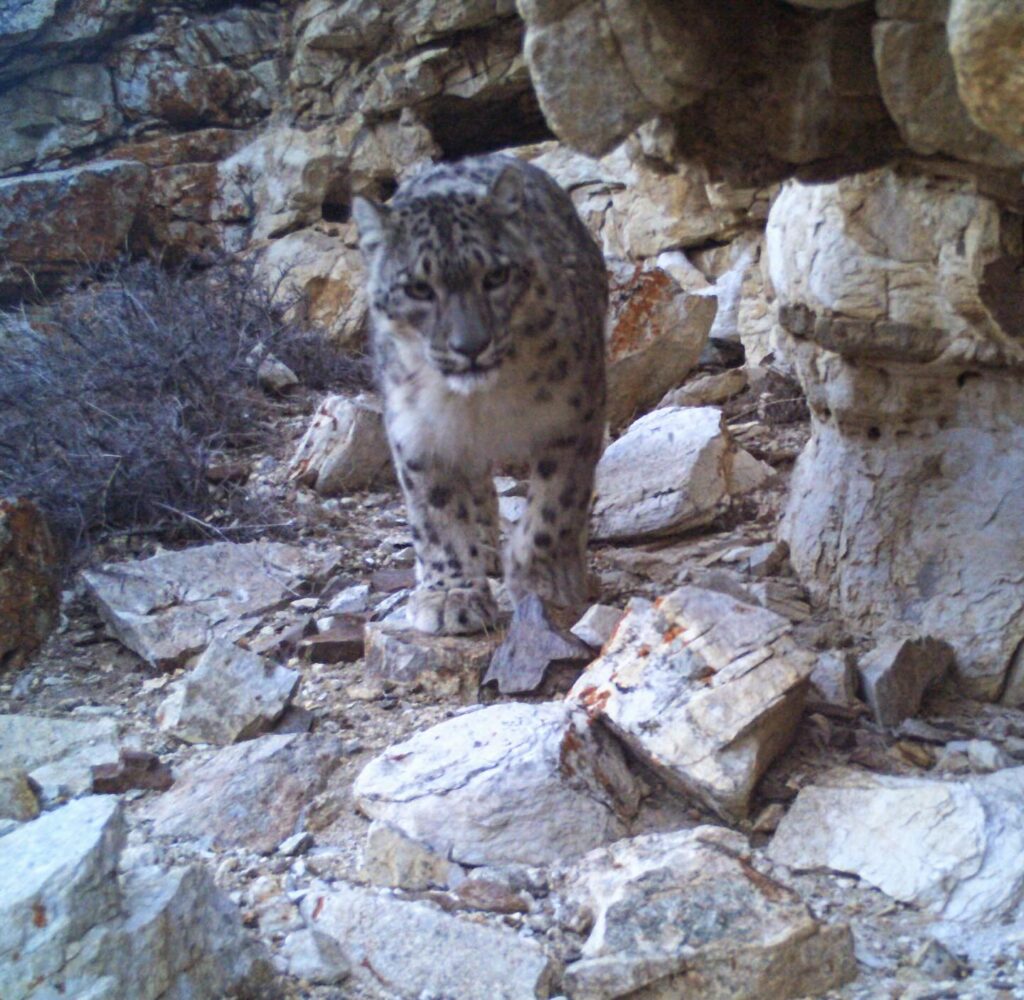
Back in 2015 during an early camera trapping survey conducted by Rinzin and citizen scientist, photograph Tashi R. Ghale, no images were captured of snow leopards at this camera location although there was evidence of snow leopard sign in the form of old scrapes. Then, eight years later in 2023, Rinzin and the UKALI team recorded a mother with two cubs and an adult male roaming the area using the same camera location. This is a positive and wonderful sign that conservation activities in this area are working.
We’re hoping this beautiful and important snow leopard family will remain and are looking forward to future generations of snow leopards inhabiting this area.
FUTURE PLANS
Future plans include analysis of data collected during the snow leopard and blue sheep survey; completion of genetic analysis, including a snow leopard population estimation based on camera trap and scat collection data; and organization of future World Wildlife Day celebrations in conjunction with the Eco-Club network.
Excerpts & Photos: Rinzin Phunjok Lama

